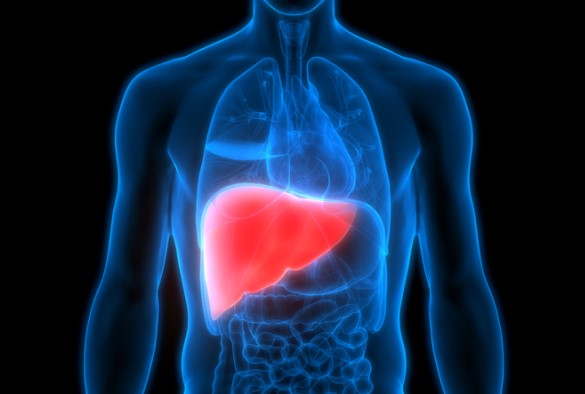
A consortium, involving researchers from the University of Liverpool, has published two new studies that identify risk factors associated with alcohol-related cirrhosis.
Alcohol-related cirrhosis is the scarring of liver tissue caused by alcohol consumption. The GenomALC consortium was established over 10 years ago to determine why some people who drink heavily go on to develop cirrhosis and others do not.
Researchers from six countries, including Professor Sir Munir Pirmohamed and Dr Andrew Thompson from the University of Liverpool, conducted two studies recruiting patients diagnosed with alcohol-related cirrhosis and compared to individuals with a similar drinking history but no evidence of liver damage.
First study
The first study looked at risk factors such as drinking patterns, preferred type of alcoholic drink, and other non-alcohol lifestyle choices that are associated with cirrhosis.
The findings showed that diabetes and increased BMI as a young adult were more common in patients with cirrhosis. There was also evidence that people without liver damage were more likely to have been wine drinkers, coffee drinkers, smokers, and cannabis users.
Second study
The second study used a genome-wide association study (GWAS) to pinpoint the genes responsible for increasing the risk of cirrhosis. This method searches a person’s DNA (genome) for small variations, called single nucleotide polymorphisms (SNPs).
Each person carries many millions of SNPs, but if a particular SNP occurs more frequently in people with a particular condition than in people without the condition, it can suggest the underlying reason for the difference.
A new genetic association between the gene FAF2 and alcohol-related cirrhosis was reported. This gene is involved with lipid fat metabolism in liver cells, which may explain its involvement in increasing the risk of cirrhosis.
Improving understanding
The findings from both studies were found to be consistent in a second cohort from the UK Biobank, helping to confirm the validity of the results.
Professor Sir Munir Pirmohamed, said: “The results of both these studies help us improve our understanding of this terrible and serious type of liver disease. These genetic and non-genetic risk factors provide new knowledge into why some people might be vulnerable to cirrhosis.”
Dr Andrew Thompson, said: “Improving our understanding of the factors leading to alcohol-related liver cirrhosis presents new opportunities for risk stratification and developing treatment options.”
The first study, entitled ‘Obesity, Diabetes, Coffee, Tea, and Cannabis Use Alter Risk for Alcohol-Related Cirrhosis in 2 Large Cohorts of High-Risk Drinkers‘, can be found here.
The second study, entitled ‘Genome‐wide association study and meta‐analysis on alcohol‐related liver cirrhosis identifies novel genetic risk factors’, can be found here.